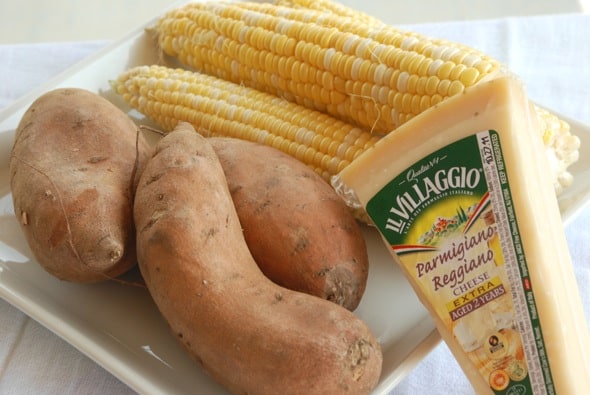Food
5 health benefits of eating hot foods

Eating hot foods can be found difficult for most people especially in a warm climate such as ours.
However, food temperatures have little or nothing to do with the weather conditions but more to do with the body and its contributions alongside food nutrients.
One important factor that helps regulate food intake is the extra heat released into the body when it is assimilated.
BODEX BLOG outlines other beneficial ways hot meals are to the health.
Mode of digestion
Hot meals aid proper digestion because of the time it takes to consume it. This enables the consumer to eat in adequate proportions which in turn gives less work to the organ that breaks down food.
Also, during the preparation of the meal, the chemicals in the food would have been broken down before it is served and consumed; the body easily absorbs the nutrients as they diffuse into the system, increasing the nutritional value.
Low risk of bacterial contamination
It is difficult for micro-organisms to survive in hot foods. Micro-organisms die while cooking but allowing the food get cold will reintroduce the bacteria, if not careful; which makes eating the meal in a hot state healthier.
Generates energy for consumption
Warm food restores the energy cold food saps from the body and equally stores up more energy for future use.
Regulates body temperature and weight
One key thing about ingesting hot food is that it regulates the body temperature in response to a cold climate, as it provides warmth from the hot food ingested.
Hot meals also help with body weight and fat; the suppression of appetite observed during the body’s exposure to heat causes the body weight level to drop below set-point which aids greater metabolic efficiency.
Once the body is able to rid unwanted products, the weight would be regulated.
The after-feeling
The feeling you get after taking a hot meal is an amazing one, compared to a cold meal.
Food
Beware, these 4 foods turn toxic in the refrigerator

Modern technology has brought about refrigeration, which is a method of preserving food so it doesn’t spoil.
Dimple Jangda, an Ayurveda and gut health doctor shared on Instagram four food items that can become toxic when stored in the refrigerator.
They were rice, ginger, garlic and onions. Here’s why:.
1. Cooked rice
In a video, the National Health Service in the United Kingdom showed how refrigerating rice can lead to food poisoning. Rice should not be kept in the refrigerator for more than 24 hours.
Two hours is the ideal time to keep rice in the fridge. However, long-term storage in the fridge can increase the growth of certain moulds. Reheating rice multiple times also increases this risk.
2. Onions
Many people cut their onions in half and put the rest in the refrigerator. Don’t refrigerate half-cut onions. Refrigeration can increase their starch content. While high-starch isn’t inherently bad, some sources suggest it may put stress on your kidneys and pancreas. This is the advice of the National Onions Association (in the US) on storage and handling of onions.
3. Garlic
It’s best to store garlic unpeeled at room temperature. Refrigeration can promote mould growth. Eating mould may result in some nausea or stomach upset, vomiting, diarrhoea, respiratory problems, and liver damage. Storing garlic in the fridge also reduces the essential oils and nutrients in garlic and makes it less tasty.
Abby Snyder, Ph.D., assistant professor of food science at the Cornell College of Agriculture and Life Sciences spoke to Prevention about what happens when you eat mould.
4. Ginger
Fresh ginger can be stored at room temperature for a short time or refrigerated in an airtight container for longer storage. Mould can grow on ginger easily in the refrigerator, and this has been linked to kidney and liver failure. The World Health Organisation warns against eating mouldy food since they have mycotoxins that can cause nausea, cramping, and vomiting.
Food
Studies say these 5 foods should be avoided when trying to conceive

Although several factors affect an individual’s fertility, including age, weight, hormones, and nutrition, when trying to conceive, diet plays a crucial role in maintaining and boosting chances of getting pregnant.
According to studies, some foods can negatively impact reproductive health and should be avoided or minimised. Therefore, it is important to be mindful of your dietary choices to increase the chances of conception.
Without further ado, here are the foods you should avoid when trying to conceive.
- Processed meats
Processed meats like sausages, hot dogs, bacon, and ham have been proven to affect the chance of pregnancy or fertilization rates in their partners.
These meats are often high in saturated fats, sodium, and preservatives like nitrates which lead to inflammation and impaired sperm quality and ovulation.
A study involving men who consumed processed meat found that lower sperm quality, count, and motility are linked to large consumption of processed meat.
So instead of processed meat opt for lean meats like chicken, turkey, and tofu.
- Alcohol
When trying to conceive, it is advisable to avoid alcohol. Consumption of alcohol even light drinking can disrupt hormone levels and reduce fertility.
According to a study, heavy consumption of alcohol can lead to low sex drive, poor sexual performance, and low-quality sperm in men.
In women, ovulation, menstrual cycle, and reproductive hormones can be affected.
Also, alcohol has been linked to having a child with Fetal Alcohol Spectrum Disorder.
Due to the effects of alcohol during conception and childbirth, it is advisable to avoid it when trying to procreate.
- Bakery products
Bakery products such as cookies, cakes, muffins, and pastries are the major sources of trans fat in the human diet.
Several studies have proven trans fat and saturated fat are associated with poorer fertility outcomes.
In a 2007 study, it was found that consumption of these bakery products can increase infertility and ovulatory disorder by 73%.
It might be hard to let go as they tend to be a go-to snack but you can start small. Start by minimising your consumption then slowly incorporate healthy carbs into your diet.
Healthy carbs include beans, avocados, fruits and nuts.
- Sugar-sweetened drinks
When trying to conceive you need to minimize or cut off sugar-sweetened drinks including soda, beverages, and energy drinks.
Sugar-sweetened beverages, particularly sodas and energy drinks have the worst effect on fertility, compared to diet sodas and fruit juice.
Another study found that high consumption of sugary beverages was associated with a lower total number of mature and fertilized eggs among women during IVF.
- Refined carbohydrates and sugar
Refined carbohydrates like bread, pasta, and white rice are some of the foods that should be minimised during conception.
Eating these foods has been linked to reduced fertility. However, regular consumption of refined carbohydrates is particularly associated with obesity.
Meanwhile, obesity has been associated with a higher incidence of infertility, recurrent miscarriage, and pregnancy complications.
So to enhance fertility, consider changing your diet to healthier, fertility-friendly options.
While it may seem like many foods are off-limits, some nutritious foods can boost your fertility.
Written by Honest Micah
Food
10 most expensive staple foods to buy in Nigeria

Nigeria’s Food inflation climbed to 40.53% in April 2024, according to the Consumer Price Index report of the National Bureau of Statistics (NBS).
This represented a 15.92% increase from the 24.61% food inflation rate recorded in April 2023.
However, Nigeria’s month-on-month food inflation declined in April for the second consecutive time following five months of consistent increase dating back to October 2023.
Monthly food inflation in April stood at 2.50%, a decline from the 3.62% recorded in March 2024 when year-on-year food inflation reached 40.01%.
Nigeria, with its diverse cuisine and rich culinary heritage, has seen significant fluctuations in the prices of staple foods over the past year.
Based on the recent data from the NBS, here are the 10 most expensive staple foods in Nigeria as of April 2024:
10. Rice Agric Sold Loose
Rice agric sold loose has seen a significant rise in prices with a 135.62% increase YoY, making it one of the top ten most expensive staple foods in Nigeria. The average price of 1kg of rice was N631.50 in April 2023, which increased to N1,487.91 in April 2024. From March 2024 to April 2024, the average price rose from N1,378.84 to N1,487.91, reflecting a 7.91% MoM increase.
The highest prices were recorded in Niger state at N1,984.18, while Benue state had the lowest at N1,078.73. This rise is indicative of broader trends affecting rice production and distribution in Nigeria.
9. Chicken Feet
Chicken feet, a popular delicacy in Nigeria, has experienced a substantial YoY increase of 138.58%. The price was N1,115.29 in April 2023, which surged to N2,660.90 in April 2024. This represents a 9.04% increase from March 2024, when the price was N2,440.35.
The highest price was found in Abuja at N5,507.95, significantly higher than the lowest price of N1,005.10 in Bauchi state. This price surge reflects the rising demand and possible supply constraints affecting chicken feet.
8. Plantain (Ripe)
Ripe plantains, essential in many Nigerian dishes, have seen a 144.68% YoY price hike. The price was N412.39 in April 2023, increasing to N1,009.05 in April 2024. From March 2024 to April 2024, the price rose from N947.35 to N1,009.05, representing a 6.51% MoM increase.
The highest prices were observed in Cross River at N1,380.87, whereas Yobe state had the lowest prices at N560.81. The price increase underscores the high demand for plantains and the challenges in maintaining stable supply chains.
7. Irish Potato
The price of Irish potatoes has surged by 149.18% YoY. The price was N567.29 in April 2023, rising to N1,413.57 in April 2024. From March 2024 to April 2024, the price increased from N1,254.45 to N1,413.57, reflecting a 12.68% increase from the previous month.
Ondo state recorded the highest price at N2,000, while Borno had the lowest at N653.73. This significant rise is influenced by seasonal factors, transportation costs, and possibly localized production challenges.
6. Rice Medium Grained
Medium-grained rice prices have risen by 151.95% YoY. The price was N609.57 in April 2023, increasing to N1,535.83 in April 2024. From March 2024 to April 2024, the price rose from N1,438.07 to N1,535.83, marking a 6.8% increase from March 2024.
The highest prices were recorded in Ogun state at N1,899.91, while Kano state had the lowest at N1,164.35. The steady increase in prices reflects broader trends in the rice market, including production costs and demand fluctuations.
5. Yam Tuber
Yam, a staple in many Nigerian households, has experienced a 154.19% YoY increase. The price was N444.69 in April 2023, rising to N1,130.37 in April 2024. From March 2024 to April 2024, the price rose from N1,068.78 to N1,130.37, representing a 5.76% MoM rise.
Cross River state had the highest price at 1,797.15, while Bauchi state had the lowest at N638.64. The price increase highlights the essential nature of yams in Nigerian cuisine and the pressures on supply chains.
4. Rice Local Sold Loose
Local rice prices have climbed by 155.93% YoY. The price was N546.76 in April 2023, increasing to N1,399.34 in April 2024. From March 2024 to April 2024, the price rose from N1,340.74 to N1,399.34, a 4.37% increase from the previous month.
Niger state recorded the highest prices at N1,785.47, while Benue had the lowest at N993.72. The increase in local rice prices underscores the challenges in local production and distribution, impacting affordability.
3. Broken Rice (Ofada)
Ofada rice, known for its unique taste, has seen a 158% YoY price increase. The price was N601.61 in April 2023, surging to N1,552.18 in April 2024. From March 2024 to April 2024, the price rose slightly from N1,525.75 to N1,552.18, a modest 1.73% increase.
Ogun state saw the highest prices at N2,941.81, while Zamfara had the lowest at N987.28. This substantial price rise reflects the growing popularity and limited availability of Ofada rice.
2. Plantain (Unripe)
Unripe plantain prices have soared by 168.29% YoY. The price was N372.89 in April 2023, increasing to N1,000.41 in April 2024. From March 2024 to April 2024, the price rose from N933.16 to N1,000.41, a 7.21% increase from the previous month.
The highest prices were recorded in Ondo state at N1,729.57, while Yobe had the lowest at N470. The significant increase highlights the versatile use of plantains in Nigerian cuisine and the supply challenges faced.
1. Sweet Potato
Sweet potato tops the list with an astounding 182.04% YoY increase. The price was N286.26 in April 2023, surging to N807.35 in April 2024. From March 2024 to April 2024, the price rose from N689.47 to N807.35, reflecting a 17.1% MoM increase.
Delta state recorded the highest price at N1,381.37, while Kaduna had the lowest at N387.68. The drastic price rise of sweet potatoes indicates a significant demand-supply imbalance and highlights the need for targeted interventions to stabilize prices.
-

 Health7 days ago
Health7 days agoWhat to eat and avoid when treating malaria
-

 World1 week ago
World1 week agoComputer scientist claiming invention of Bitcoin faces criminal investigation in UK
-

 Politics1 week ago
Politics1 week agoSenator Monguno replaces Ndume as Senate Chief Whip
-

 Celebrities1 week ago
Celebrities1 week agoMohbad’s wife claims Joseph Aloba is her son’s greatest enemy
-

 Politics1 week ago
Politics1 week agoAppeal court affirms Douye Diri as Bayelsa governor
-

 Politics1 week ago
Politics1 week agoActress Hilda Dokubo suspended as Labour Party’s Rivers chairperson
-

 Entertainment1 week ago
Entertainment1 week agoRema’s ‘HEIS’ sets record for biggest opening week on Spotify Nigeria in 2024
-

 Politics1 week ago
Politics1 week agoOndo LP Governorship candidate, Dr Ayodele Olorunfemi promises ₦120k minimum wage if elected


















